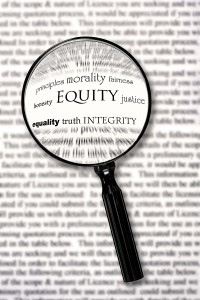Do you know the “Original Instructions?”
“The thing that is wrong in the world today is that people have forgotten their instructions.” Onondaga Chief Leon Shenandoa in “To Become a Human Being”
 And what instructions might those be, you ask? Every indigenous person would know: the instructions passed down from the Creator, the elders, the ancestors, on how to live a life in harmony and balance with the world around them.
And what instructions might those be, you ask? Every indigenous person would know: the instructions passed down from the Creator, the elders, the ancestors, on how to live a life in harmony and balance with the world around them.
The Brehon Law
In the late 1990s, I was visiting a friend in Dublin, Ireland and, at that time, most of the news headlines were about football riots taking place all over Europe. But none in Ireland!
One day, while sitting around the kitchen table having afternoon tea, my host made a passing reference to “the Brehon Law.”
“What’s that?” I asked.
“It’s the reason Ireland doesn’t have any football riots.”
A light went off in my head: A code of conduct. My research into learning more about the Brehon Law was most enlightening. Here are some of the highlights:
- It stood for over 3,000 years, until English rule under Cromwell in the 17th Century ended Ireland’s government of the people, but much of its essence is still found in the culture today.
- At the heart of the Brehon Law was its emphasis on honor. If a person gave his word, he or she kept it. Written contracts were unknown and unnecessary. It’s the same way with Native Americans and other indigenous people: a handshake is all that’s needed to seal a deal. Modern society’s need for lawyers and contracts is why Native people call us “the paper tribe.”
- There was respect for the past and the earth: there are more passage graves and ancient archeological sites left untouched in Ireland than the rest of Europe combined — even in Dublin! One dolmen I saw [ancient grave site marked by giant rocks] had a roundabout built around it to leave it undisturbed. This is just one example of why I’m proud to be Irish.
- Equality of women [not quite on a par with men, but pretty close].
So the Brehon Law consisted of a code of ethics for the Celtic peoples to know how to live well. And Native American had their code of ethics, too.
The Original Instructions
In my studies with indigenous and ancient cultures around the world, these are the things I find they have in common, all of which stem from “Original Instructions” from the Creator:
- Value is placed on good character: gratitude, generosity, forgiveness, honor, justice, loyalty, courage, kindness, wisdom, to name just a few;
- Respect for the earth and all the animal nations;
- Equality of women [women may have different roles than men, but those roles were highly regarded].
Unlike these ancient codes, modern, contemporary society views life as a hierarchy: the earth is at the bottom and money/power at the top. This ladder view forces constant evaluation of whether you’re above or below others, which leads to competition, insecurity, stress and imbalance.
Indigenous peoples follow a circular way of life. Round structures, tipis, drums, lodge. Even the legendary King Arthur had the wisdom to seat his knights at a round table. Everything’s on one plane, nothing higher or lower. There were no wealthy classes and no poor classes; everyone had enough and was equal and free.
This was such a revolutionary concept to the first Europeans who came to the New World that it became big news back in Europe in the 16th-18th centuries: even the “savages” embraced equality! That news became a catalyst for the demand for democracy in Europe to replace the ruling classes and the abject poverty of the peasants.
In fact, the United States Constitution was modeled after the Great Law of Peace of the Iroquois Confederacy – a code of conduct for governing people justly. But our forefathers did not adopt all of the Great Law of Peace and that oversight has led to some of the failures in our society today. More on that in future posts.
“In the beginning were the Instructions… The Instruction was to live in a good way and be respectful to everyone and everything.” Vickie Downey, TEWA/Tesuque Pueblo [www.whitebison.org]
Is there a code you live by? If not, what code would you like to live by?
Molly Larkin is the co-author of the international best-seller “The Wind Is My Mother; The Life and Teachings of a Native American Shaman” and other books on health. She is passionate about helping people live life to their fullest potential through her classes, healing practice and blog at www.MollyLarkin.com

